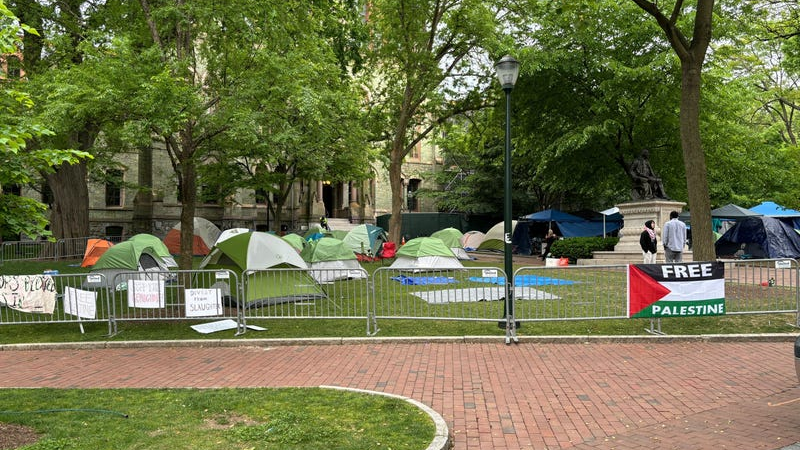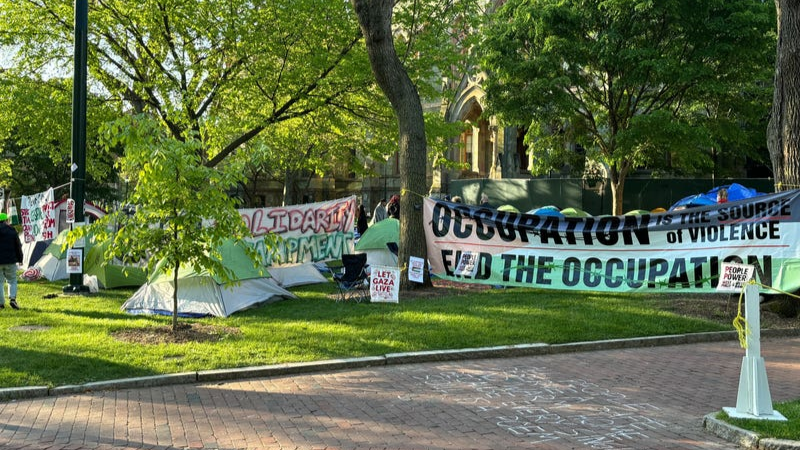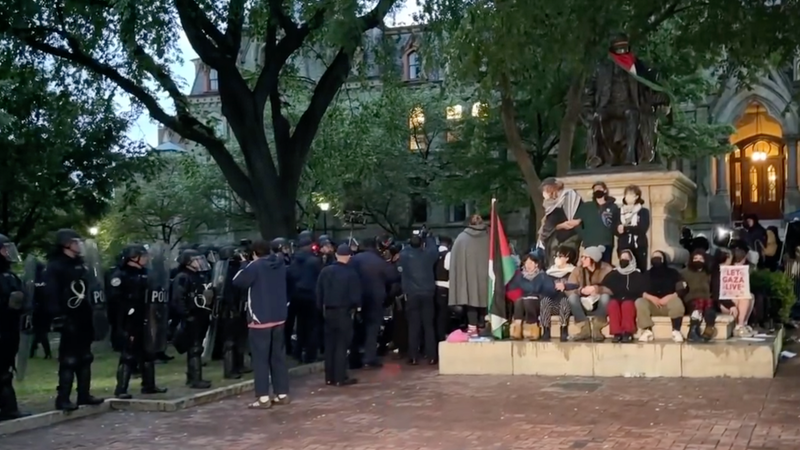
PHILADELPHIA (KYW Newsradio) — The University of Pennsylvania is temporarily banning overnight encampments in response to a pro-Palestinian protest on Penn’s campus that was cleared out last month after more than two weeks.
Penn leadership, including interim President Larry Jameson sent a message to the Penn community, saying the university is implementing a set of “temporary standards and procedures for campus events and demonstrations.”
Penn says it wants to “reinforce and reaffirm Penn’s commitment to open expression and, at the same time, ensure that events, demonstrations, and other expressions of free speech are appropriately managed.”

Overnight activities that have not been authorized will now be considered trespassing. Structures like tents, walls and barriers are not allowed to be built. Amplified sound, like bullhorns and music, is only permitted on some parts of campus between 5 p.m. and 10 p.m. And anyone who is not a member of the Penn community, participating in demonstrations, would still need to adhere to the new rules.
This comes one month after police arrested 33 people, nine of which were Penn students, while sweeping an encampment that had lasted for 15 days.
Protestors had set up an encampment on Campus Green, right in the heart of campus, following a movement of students at schools across the country to protest the ongoing Israel-Hamas war.
Protests have been taking place at college campuses around the country. Locally, encampments were also created at Swarthmore College and the University of Delaware — and, later, at Drexel university.
The Palestinian death toll continues to mount higher and higher. Continuing Israeli strikes leave Palestinian civilians in Gaza not a single safe place to take refuge. And the humanitarian crisis there worsens by the day
Organizers had three demands for the university:
◾ They called for a ceasefire in Gaza.
◾ Protesters refused to move unless Penn disclosed its investments and cut financial ties to Israel and divested from companies they say are enabling the war.
◾ And they wanted the university to defend the rights of students who express support for Palestinians.

The university said in a statement at the time that it respects and supports the right to protest peacefully but “the right to free expression and to protest on our campus is not and can never be absolute. We will not permit protest and speech when it devolves into words and actions that violate Penn’s policies, disrupt University business, or contribute to an intimidating, hostile, or violent environment on our campus.”
People in the encampment, as well as counter-protesters, had claimed instances of harassment. Some Jewish students said the protests veered into antisemitism and made them afraid to set foot on campus.
Early on the morning of May 10, the university gave warning to the encampment that protestors were trespassing, and those who did not leave voluntarily would be arrested and removed. Penn Police, with support from the Philadelphia Police Department, removed the encampment on College Green, and arrested some 30 people, citing them for “defiant trespass,” according to the university.
No violence was reported.
